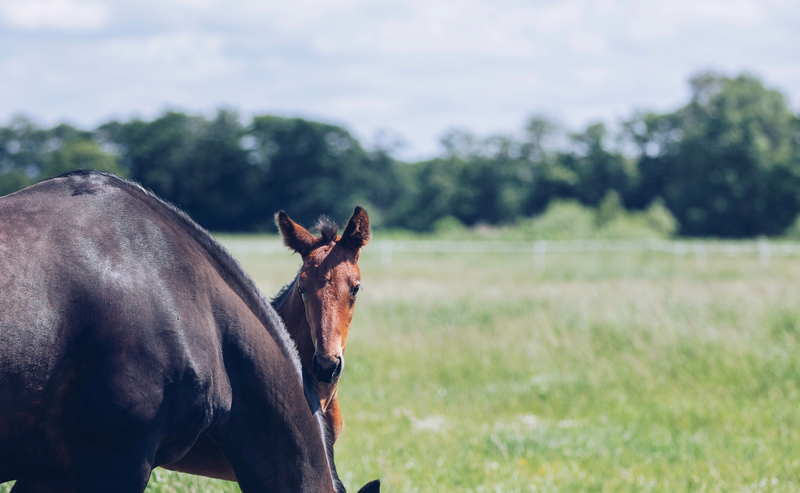Guest Blog: What the Solicitors Say...
- HorseQuest

- Dec 18, 2019
- 4 min read
When it comes to buying and selling horses, it’s important to understand your legal rights. In this blog, Alison Goodwin, partner at Harrison Clark Rickerbys solicitors, talks us through your legal rights...

When you agree to buy or sell a horse, you are entering into a contract with the other party. Buying a live animal with significant financial and practical implications attached to it requires careful thought and consideration before agreeing to make the purchase. Once the purchase is made, you have limited redress and are responsible for the welfare of the horse.
Buying Private or Trade...
The rights you have against a seller, once you have purchased a horse, depend upon who you bought the horse from – a private seller or a trader. In most cases buying a horse from a trader will provide the buyer with more legal protection than when they buy from a private seller. This is because the Consumer Rights Act 2015 (the Act) affects all consumer contracts for the sale of goods (horses are classed by the law as goods for these purposes).
The provisions of the Act apply only to business to consumer contracts. Therefore the rights implied in the sale contract for purchasers are only available when they buy the horse from a trader as a consumer (i.e. they buy the horse for their own private purpose, acting for purposes entirely separate from their business, trade or profession). If you ride or keep horses solely for pleasure, this will be you.
Whether the seller is a trader or not is not always easy to determine and each case will be different. Essentially, however, a trader means anyone who is acting for purposes relating to their trade, business or profession.
The Act says that all goods supplied to consumers by a trader must be of satisfactory quality, fit for purpose, as described, matching any sample provided and in accordance with any information provided before the contract was entered into. If there is a problem after purchase, it can be possible to return the horse and obtain a refund or seek damages for any losses incurred.
A consumer has a tiered system of rights in dealing with goods which they believe do not meet the relevant applicable standard.
In the first instance, within 30 days of both ownership having passed and the horse having been delivered, the consumer has a short-term right to reject the horse and seek a refund from the seller.
Buying Trade - If you do wish to reject the horse...
If you do wish to reject the horse, you must clearly indicate that you are treating the contract between you and the trader as being at an end – it is best to do this in writing and keep a copy. Once you have taken this step, it is best not to do anything more with the horse other than maintain its welfare, or it could be argued you have not truly rejected it. The consumer will be entitled to a refund of any monies paid and the trader must bear the reasonable cost of returning the horse.
If you do not reject the horse within the first 30 days, you still have a right to repair or replacement of the goods. It is, however, important to note that the trader has only one opportunity to carry out the repair or replacement. If the repair or replacement is impossible, or if the trader’s first attempt fails, the consumer then has a final right of rejection. The right to repair and replacement is often inconsistent, and of course, not practicable when dealing with a live animal.
If a consumer exercises his or her final right of rejection, any refund due to them may be reduced to take account of any use which they have had of the horse since it was delivered.
These consumer rights apply to all goods, not just horses; your rights apply equally to the purchase of a horsebox, trailer, saddle or any other physical, moveable item. They do not apply, however, when purchasing goods from a private individual.
Buying Private - If you do wish to reject the horse...
If you are considering buying a horse from a private individual, or if you are a trader yourself, the Act will not protect you and the principle of ‘buyer beware’ applies. It is therefore vital, in those circumstances, that you have any of the terms agreed between you and the other party recorded in a sale contract.
So, if the seller tells you before you buy the horse that it is ‘bombproof in traffic’, and it later transpires to be very spooky on the roads, you will be in a far stronger position to rely on that assurance if it was recorded as a term of the contract between you. Equally, if you are selling a horse, you may wish to record that you have made no assurance about, for example, the soundness or suitability of the horse.
A well-drafted contract of sale should protect both parties. At the very least, make a careful note of the terms agreed between you and try to ensure all discussions about the horse are recorded via email or message where possible.
If you do find yourself in the unfortunate position of being involved in a dispute relating to the sale of a horse, it’s important to act quickly. Alison Goodwin, partner at Harrison Clark Rickerbys solicitors, is a solicitor with many years’ experience in dealing with equine related disputes. She can be contacted on agoodwin@hcrlaw.com or 07966 613829.
.png)






Comments